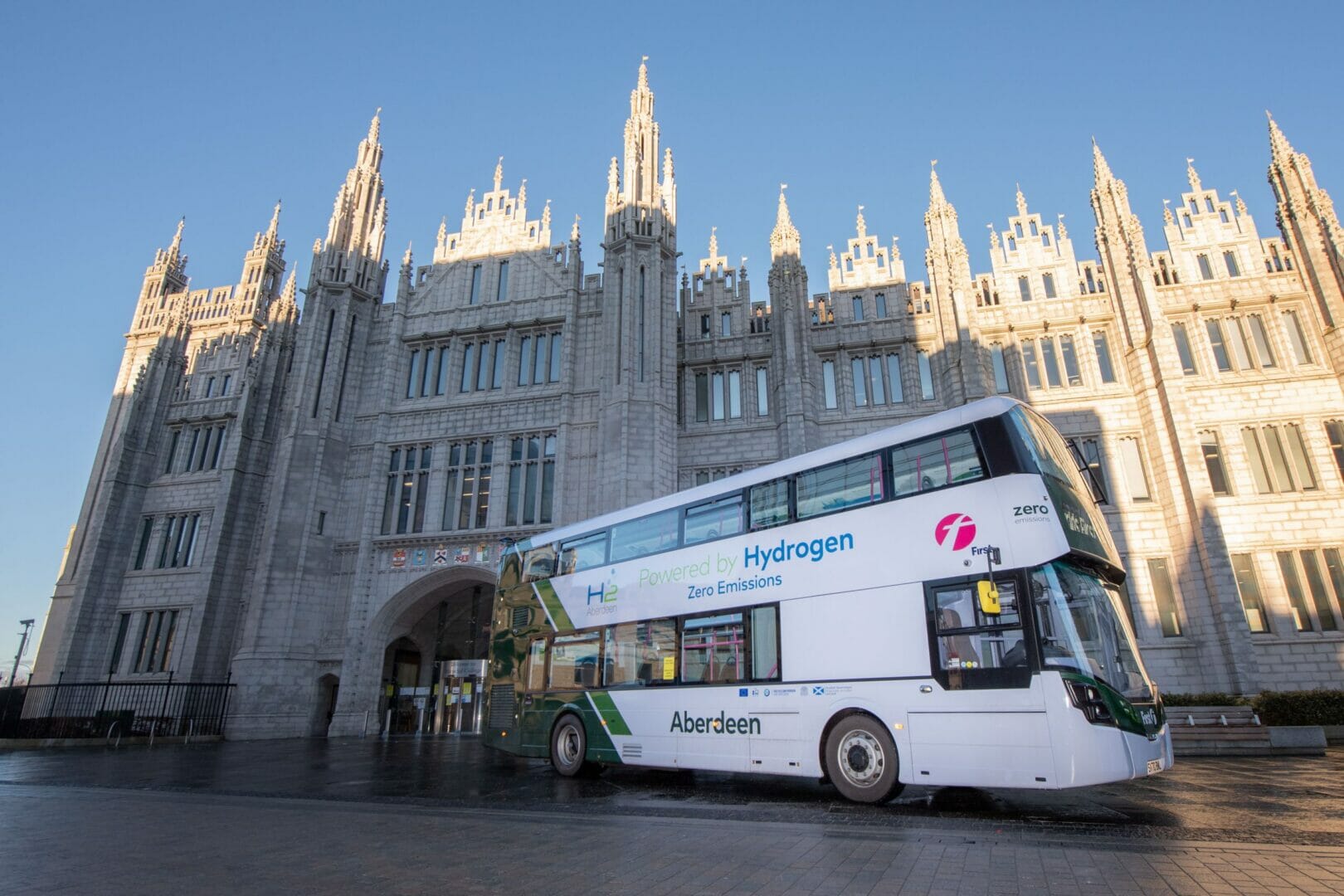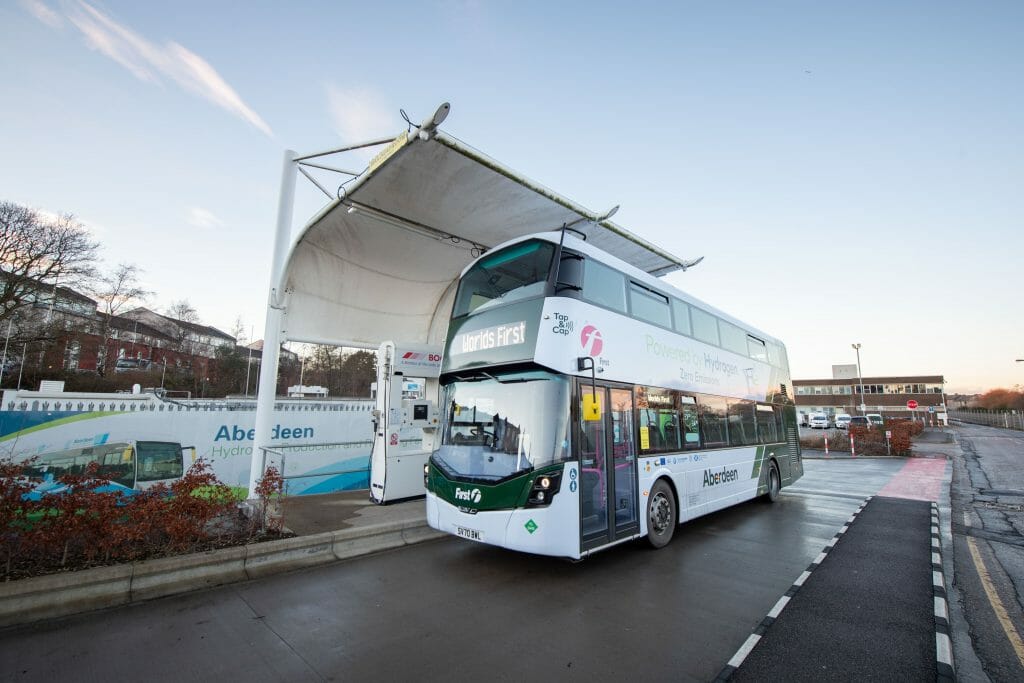
Leading multidisciplinary engineering consultancy HDR | Hurley Palmer Flatt recently completed work with First Bus in Aberdeen to prepare the depot where the world’s first hydrogen-powered double-decker buses now reside.
The buses are now fully operational and officially launched recently, setting up Aberdeen for a cleaner, greener 2021.
HDR | Hurley Palmer Flatt helped to ensure that the site was ‘hydrogen ready’ by providing both pre-tender and post-tender services. Pre-tender plans included conducting a full site survey, taking the lead on assessing and designing all new infrastructure required at the bus depot, producing all necessary drawings, specification, and tender package for the mechanical, electrical and public health works. HDR | Hurley Palmer Flatt was also involved in assigning contractors, reviewing tender returns, and providing a tender report with a recommendation.
Post-tender services comprised carrying out the contract administrator role, as well as attending the site to review the progress made by contractors.
HDR | Hurley Palmer Flatt has worked with First Bus, one of the largest bus operators in the UK, on numerous other projects and frameworks recently including a scheme to help introduce a range of electric vehicle (EV) charging points into their Aberdeen Depot to help with their EV fleet.
Aberdeen City Council commented that the new zero emission buses emphasise “the city’s role as the energy capital of Europe and shows its commitment to the transition of green energy from oil and gas, as part of the Net Zero Vision.”
With refuelling taking no more than 10 minutes, the double-deckers comfortably live up to the efficiency of electric equivalents. The buses are a great contribution to fulfilling the city’s pledge to combat air pollution, with carbon emissions greatly reduced as the only emission from the vehicles is water.

The launch of world’s first hydrogen double deckerbusses starting their service routes in Aberdeen.
Picture by Abermedia / Michal Wachucik
The double-deckers, manufactured by Northern Ireland-based company Wrightbus, are a welcome addition to the existing fleet of greener vehicles the city already had in motion including several hydrogen and electric vans, road sweepers, and cars through a car share arrangement. The 15 buses travel mainly on one of First Aberdeen’s most popular service routes, Service 19, which runs from Peterculter to Tillydrone, along with other routes.
The new fleet of hydrogen buses total £8.3million and were funded by Aberdeen City Council, the Scottish Government, and the European Union Fuel Cells and Hydrogen Joint Undertaking (FCH JU,) with each vehicle costing around £500,000.
The European Union’s JIVE project has also partly funding the venture and plans to aid commercialisation of hydrogen buses through joint procurement between cities. London, Birmingham, Dundee, Brighton, and Hove have all opted-in to the project and so are all set to follow Aberdeen in the quest to become greener cities.
The news of the new hydrogen buses has come at an appropriate time, since the UK government recently made an announcement proposing a ten-point plan for a green industrial revolution. One of the major points described plans to increase the UK’s usage of low carbon hydrogen, which could provide a clean source of fuel and heat for homes, transport, and industry. There was also a pledge to accelerate the UK’s shift to zero emission vehicles; this along with other key focuses will act towards making the UK a global leader in green technologies, support growth of green jobs and built back a better society post-pandemic.
Andrew Jarvis, Managing Director for First Aberdeen said:
“It was a pleasure to collaborate with HDR | Hurley Palmer Flatt to adapt our depot in Aberdeen to be able to house the world’s first hydrogen-powered double decker buses. The vehicles were launched successfully and so we are delighted and thankful to all our partners who helped us to deliver on this ground-breaking project for the city of Aberdeen.”

The launch of world’s first hydrogen double deckerbusses starting their service routes in Aberdeen.
Picture by Abermedia / Michal Wachucik
